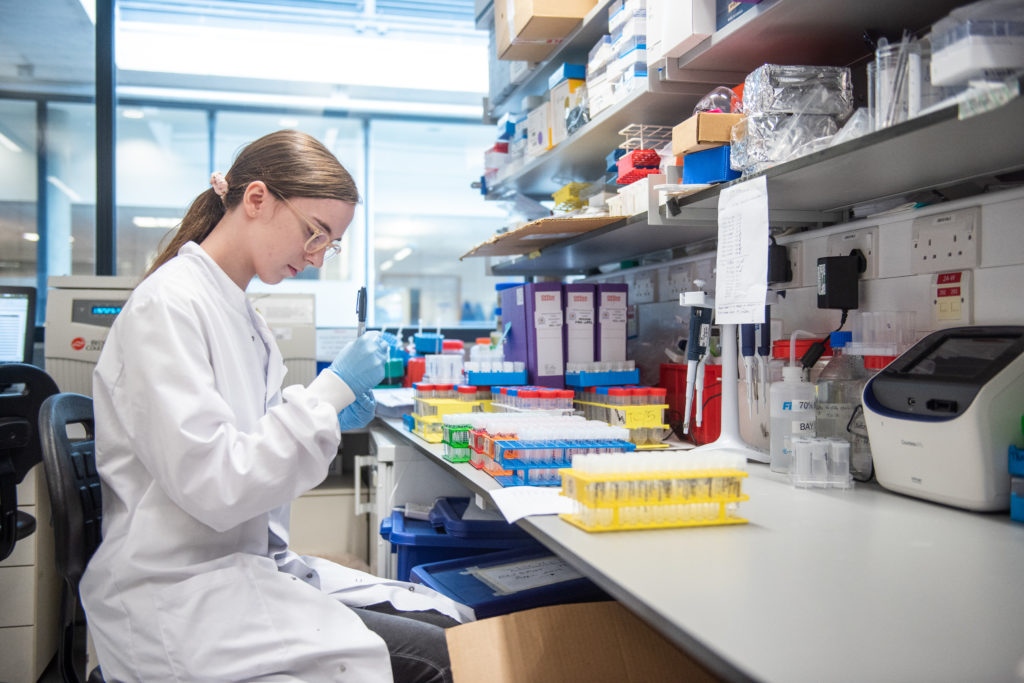The vaccine against SARS-CoV-2 developed by researchers from the University of Oxford and AstraZeneca is safe and effective according to the peer-reviewed findings of the phase 3 trial.

The pooled analysis of the trial across two different dose regimens resulted in an average efficacy of 70.4%; however, one dosing regimen achieved 90% efficacy.
The new study, published in the Lancet, is the first peer-reviewed publication of phase 3 data from studies of a vaccine against the coronavirus.
The efficacy data are based on 11,636 volunteers across the United Kingdom and Brazil, and combined across three groups of people vaccinated – two groups who received a standard dose prime vaccination followed by a standard dose booster vaccination and one group (in the UK only) who received a low dose prime vaccination followed by a standard dose vaccination.
Professor Andrew Pollard, Director of the Oxford Vaccine Group and Chief Investigator of the Oxford Vaccine Trial, said: “Today, we have published the interim analysis of the phase III trial and show that this new vaccine has a good safety record and efficacy against the coronavirus. We are hugely grateful to our trial volunteers for working with us over the past 8 months to bring us to this milestone.”
The pooled analysis in the study shows that the overall vaccine efficacy at least 14 days after the second dose was 70.4%; the standard dose / standard dose sub-groups showed 62.1% efficacy, and the low dose / standard dose sub-group demonstrated 90.0% efficacy.
No hospitalisations or severe disease were observed in the vaccinated groups.
The authors further report on an extensive safety database from volunteers in the UK, Brazil and South Africa accompanying the efficacy findings. Of 23,848 trial volunteers, and more than 74,000 ‘person-months’ of safety follow-up, only three from 175 reported serious adverse events were possibly related to the vaccine.
Of these, one was considered ‘possibly related’ to the ChAdOx1 nCoV-19 vaccine, one occurred in the control group, and a further case of severe fever in the vaccinated group was considered to be an expected vaccine-related event.
The trial protocols and statistical analysis method are presented in the appendices to the paper.
Of the 11,636 volunteers in the UK and Brazil included in this initial analysis of efficacy, the majority are in the 18-55 age range, with those aged 56 or older contributing 12%.
As only five cases included in the primary analysis occurred in those who were more than 55 years old, the vaccine efficacy in older age groups could not be assessed but will be determined in future analyses after more cases have accrued in this age range.
Professor Sarah Gilbert, Professor of Vaccinology at the University of Oxford, said: “We have known for many years that adenoviral vectored vaccines fulfil the requirements for use against outbreak or pandemic diseases. They are safe, highly immunogenic, can be manufactured in large quantities at low cost and do not require frozen storage.
“Following the demonstration of vaccine efficacy in many preclinical studies, we now have clear evidence of efficacy in the trial results presented in a peer-reviewed publication today. Now under regulatory review, we hope that this vaccine will shortly be in use to start saving lives.”
The Oxford BRC provided crucial funding to get the trial up and running and then helped to fund an evaluation of the safety of the vaccine. Both Prof Pollard and Prof Gilbert are leading members of the Oxford BRC’s Vaccines Theme.
The researchers also investigated the potential for the vaccine to prevent asymptomatic disease, through the use of weekly swabbing by UK trial volunteers. These data indicate that the low dose / standard dose vaccine may provide a protection against asymptomatic infection, but stress that these data are at an early phase, with too high a level of uncertainty to be certain that this vaccine will protect against asymptomatic infection.
Pascal Soriot, Chief Executive Officer of AstraZeneca, said: “Today’s peer-reviewed publication enables a full disclosure of the Oxford programme interim analysis. The results show that the vaccine is effective against COVID-19, with in particular no severe infections and no hospitalisations in the vaccine group, as well as safe and well tolerated. We have begun submitting data to regulatory authorities around the world for early approval and our global supply chains are up and running, ready to quickly begin delivering hundreds of millions of doses on a global scale at no profit.”
Further analysis is ongoing into these data, and will be provided to the regulators to enable them to best decide on dose protocols, should this vaccine be granted emergency use authorisation.